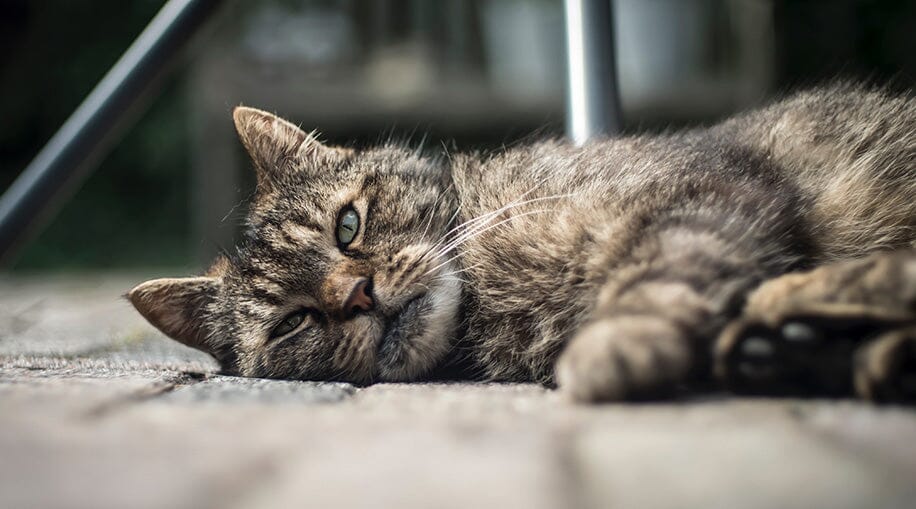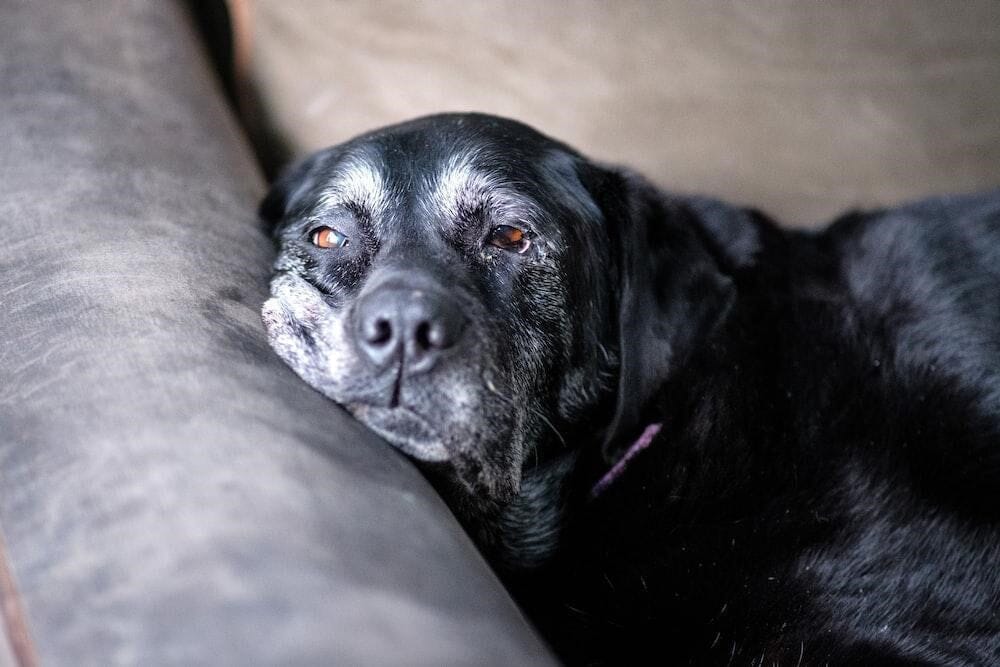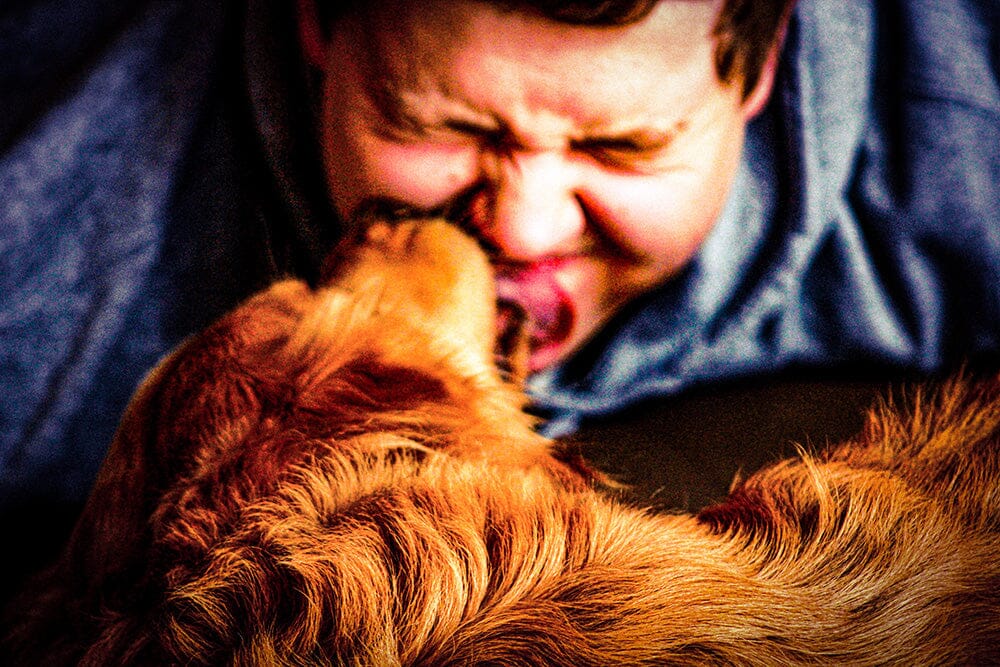Cat Pneumonia - Treatments, Symptoms, and Causes
Most people don't think that cats get colds or runny noses or coughing, until it actually happens to your cat. Hearing and seeing your kitty congested and having trouble breathing is heartbreaking. Unfortunately, cats are just as susceptible to getting pneumonia and other respiratory illnesses as people.
In fact your cat’s lungs work just like your lungs: they remove carbon dioxide and supply fresh oxygen, which is then transferred directly into the bloodstream. Pneumonia occurs when this transfer of oxygen gets disrupted.
Cat pneumonia is more than a simple case of kitty sniffles. It can irritate and swell up your cat’s lungs, making it difficult for them to breathe.
Knowing the signs of cat pneumonia and catching it early on makes it much easier to treat. Continue reading to learn about its symptoms, causes, and treatments so you can act promptly and help your kitty feel better.
Signs of Pneumonia in Cats
Like in humans, pneumonia in cats is more likely to impact the very old, the very young, and those with compromised immune systems.
The symptoms might differ a little depending on the type of pneumonia, but you should typically keep an eye out for the following signs:
Difficulty swallowing or breathing
Rapid heartbeat
Increased respiratory rate
Coughing
Fever
Yellow or green nasal discharge
Weight loss
Loss of appetite
Lethargy
Dehydration
Blue-tinted mucus
Persistent coughing
These symptoms might appear quickly or slowly, depending on the severity and type of the infection.
What Causes Pneumonia in Cats?
Pneumonia can be caused by a variety of factors, some contagious and some not. Here are the four common types of cat pneumonia:
1. Bacterial Feline Pneumonia:
Bacterial pneumonia in cats refers specifically to an inflammation of the lungs caused by a disease-causing infection or bacteria that can be passed on to other animals. The inflammation is characterized by a buildup of fluid and cells in the airways, lungs, and alveoli (the part of the airways where carbon dioxide and oxygen are exchanged).
Thus, the alveoli are unable to remove carbon dioxide from the blood or replace the contaminated blood with oxygenated blood. The level of oxygenated blood falls, and your cat’s body makes up for the low oxygen level by breathing heavily and rapidly.
2. Aspiration Pneumonia:
Have you ever had a terrible coughing fit after breathing in bits of food or liquid?
Well, cats can also sometimes inhale foreign objects such as water, liquid medications, or their own vomit. These foreign materials can irritate your cat’s lungs, leading to aspiration pneumonia.

3. Fungal Pneumonia:
Also known as mycotic pneumonia, fungal pneumonia starts as a fungal infection that advances into the development of pneumonia. It is believed that inhaling spores from the soil is the most common source of fungal infection in felines.
While cases of fungal pneumonia are rare in cats, they do occur. Cats with immune disorders are more vulnerable to developing fungal pneumonia, as are male cats and younger cats.
4. Parasitic Pneumonia:
Parasites such as flukes or lungworms can enter the lungs and cause inflammation. Cats usually get these parasites by drinking contaminated water or consuming prey.
Outdoor cats and kittens are more likely to suffer from parasitic pneumonia.
Cat Pneumonia Treatments
When cat pneumonia is caused by a viral infection, your vet might prescribe supportive care treatments such as medications and IV fluids to control fever and cough. If your cat is not eating properly, your vet might also suggest switching them to a more calorie-rich diet as they recover to make sure its nutritional requirements are being met.
They might also suggest subcutaneous fluids to help your feline stay hydrated, along with a cool mist humidifier. Viral pneumonia typically gets better after a few days, even though the symptoms might linger for a couple of weeks.
Since it’s often hard to tell if bacteria or a virus caused pneumonia, your vet might prescribe an antibiotic. Note that antibiotics need to be taken for the entire prescribed course, and you should not discontinue them early, even if your cat shows clinical signs of improvement. It is important to finish the course of medication to avoid antimicrobial resistance; otherwise, this treatment might not work if your cat gets pneumonia again.
In the meantime, keep your cat away from any other pets, as these forms of pneumonia can be contagious.

Natural remedies such as Breathe Easy Respiratory Support for Cats can help to open up the airways making breathing easier and speeding up recovery of respiratory illnesses such bacterial pneumonia, while at the same time helping to reduce symptoms such as sneezing, wheezing and coughing which come with both the bacterial as well as aspiration feline pneumonia.
The treatment for parasitic and fungal pneumonia depends on the cause. Antiparasitic and antifungal medications are prescribed on a case-by-case basis, and will usually take about 1-6 weeks to take effect. During treatment, try to keep your cat inside so they are not exposed to other fungi spores or parasites.
Swift treatment is important to avoid potentially life-threatening complications. However, with the right medical assessment and treatment, cat pneumonia is easily treatable.
How to tell if it’s Pneumonia, Cat Cold, or Cat Flu?
Cat pneumonia is difficult to diagnose in felines as a lot of the symptoms can occur due to other illnesses, such as cat colds or the “cat flu”.
The cat flu is actually an upper respiratory infection—it is usually not caused by an influenza virus. Nevertheless, the symptoms of a URI are similar to the flu in humans, including sneezing, fever, runny nose, trouble breathing, and watery eyes.
These symptoms are quite similar to the signs of cat pneumonia. Thus, it’s important to take your furry friend to the vet for a correct diagnosis. This ensures they get the proper type of treatment for their particular health condition and start to feel better soon.
How to take Care of a Cat with Pneumonia at Home?
Your cat is going to need a lot of rest while recovering from pneumonia at home. Set up a comfortable place for them to relax away from other pets in the house. You will have to limit their activity even though your vet might recommend small rounds of exercise to loosen the mucus and clear up the lungs.
Make sure you give your cat lots of fresh water to prevent dehydration. If your cat isn’t drinking water from their bowl as much as they did previously, you can add a bit of tuna water to make it more appealing. You can even give them wet food to boost their water consumption. Wet food can stimulate your cat’s appetite and encourage them to eat more.
How to Prevent Cat Pneumonia?
Keeping your feline healthy by feeding them highly nutritious foods, giving them supplements, along with regular parasite control are a good way to help prevent illnesses such as cat pneumonia. If your cat is getting older, some additional care may need to be taken to make sure that your senior kitty stays healthy.
Moreover, preventing unnecessary exposure to other cats outside the house, along with making sure your cat doesn’t come into close contact with stray cats, is essential to prevent a feline-to-feline transmission of the pneumonia-causing agents.

Other Cat Pneumonia FAQs
Here are some other questions you might have related to cat pneumonia.
a. Can cats survive pneumonia?
The chances of survival for cats with pneumonia are typically good if they get treatment early. However, some types of pneumonia, such as aspiration pneumonia, can be difficult to treat and usually result in additional health complications.
b. Is cat pneumonia contagious?
If your cat is suffering from bacterial or viral pneumonia, it could pass it on to other dogs, cats, and small animals they come in contact with. To prevent the spread of the bacteria or virus, it’s a good idea to keep your sick cat separate from other pets in your house by confining them in a particular room.
c. Can cats get pneumonia from humans?
No. Cats cannot contract pneumonia from humans as the pneumonia strain for both cats and humans is different. Thus, humans can also not get pneumonia from cats.
d. How long does it take to cure pneumonia in cats?
A lot of cats with bacterial and aspiration pneumonia need 1 to 3 days of hospitalization as they might need supplemental oxygen. Your vet might also prescribe antibiotics for at least 14 days.
Viral infections might clear up on their own in 1 to 2 weeks but might lead to secondary bacterial infections. Thus, it’s important to monitor them closely at home.
e. How quickly does pneumonia develop in cats?
The rate at which pneumonia develops is different for all felines. For instance, the symptoms of bacterial pneumonia can develop abruptly over 24 to 48 hours, or they might come more gradually over multiple days.
Similarly, aspiration pneumonia in cats can lead to symptoms 1 to 18 days after the event.
f. How to feed a cat with pneumonia?
Cats with pneumonia typically need more calorie-rich dry or wet food to ensure their nutritional needs are adequately met.
Adding more meat or fish to their regular diet can also help them stay a healthy weight while recovering. If your cat’s appetite has decreased or they refuse to eat, try giving them chicken or beef wet food mixed with warm (not hot!) low-sodium chicken broth.
Final thoughts...
While cat pneumonia is quite rare, you should know its signs and symptoms in order to recognize and address any problems before they impact your kitty’s health. Take the necessary steps to prevent pneumonia through proper diet, and regular checkups. Pneumonia may seem scary, but as long as you get your furry friend treatment straight away, there is a very good chance that they will make a full recovery.
At BestLife4Pets, we offer a range of cat supplements and over-the-counter medications you can give your pet to help with pneumonia or other respiratory issues. For instance, the Breathe Easy Respiratory Support for cats provides natural relief for nasal and oral discharge, runny nose, fever, cough, and sore throat.



